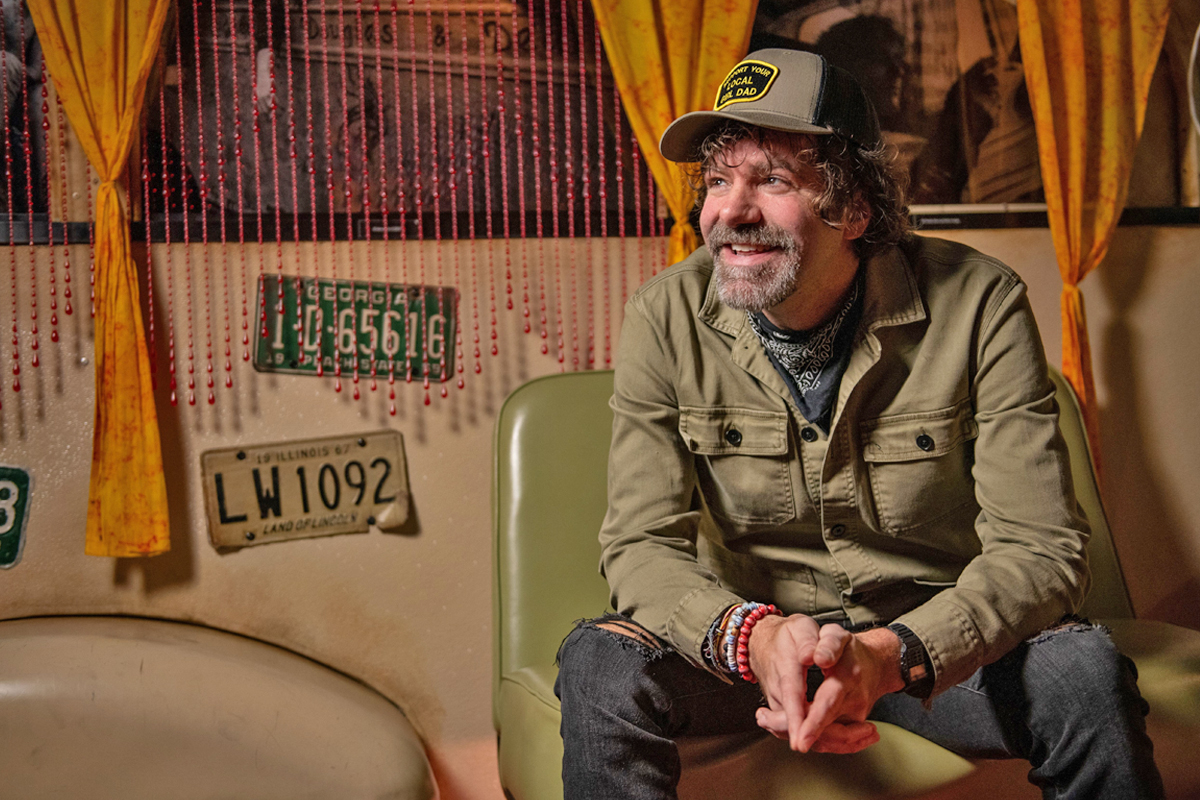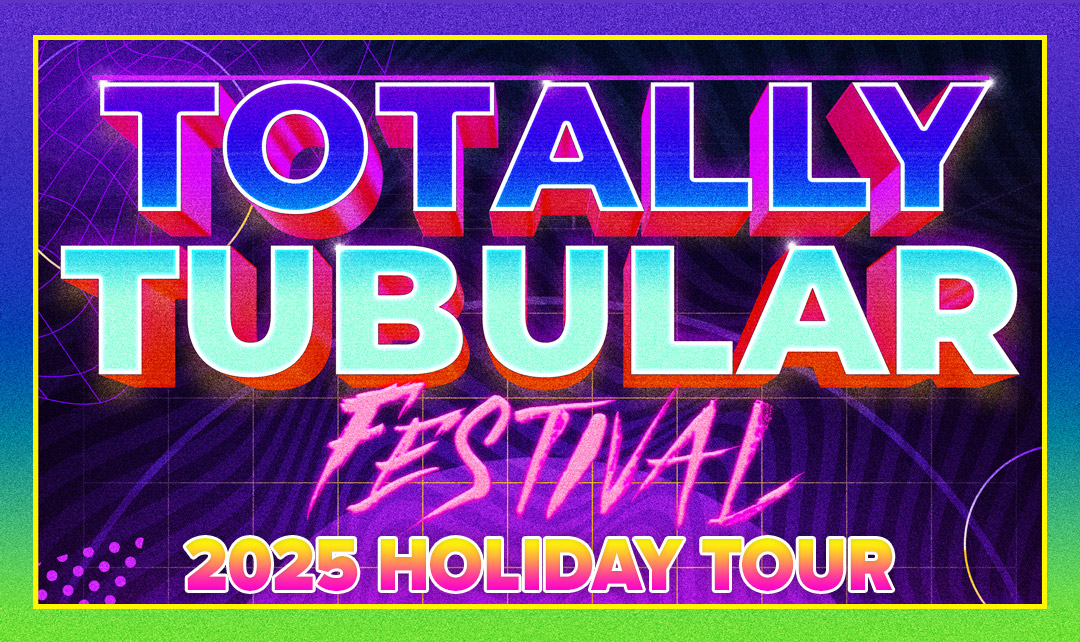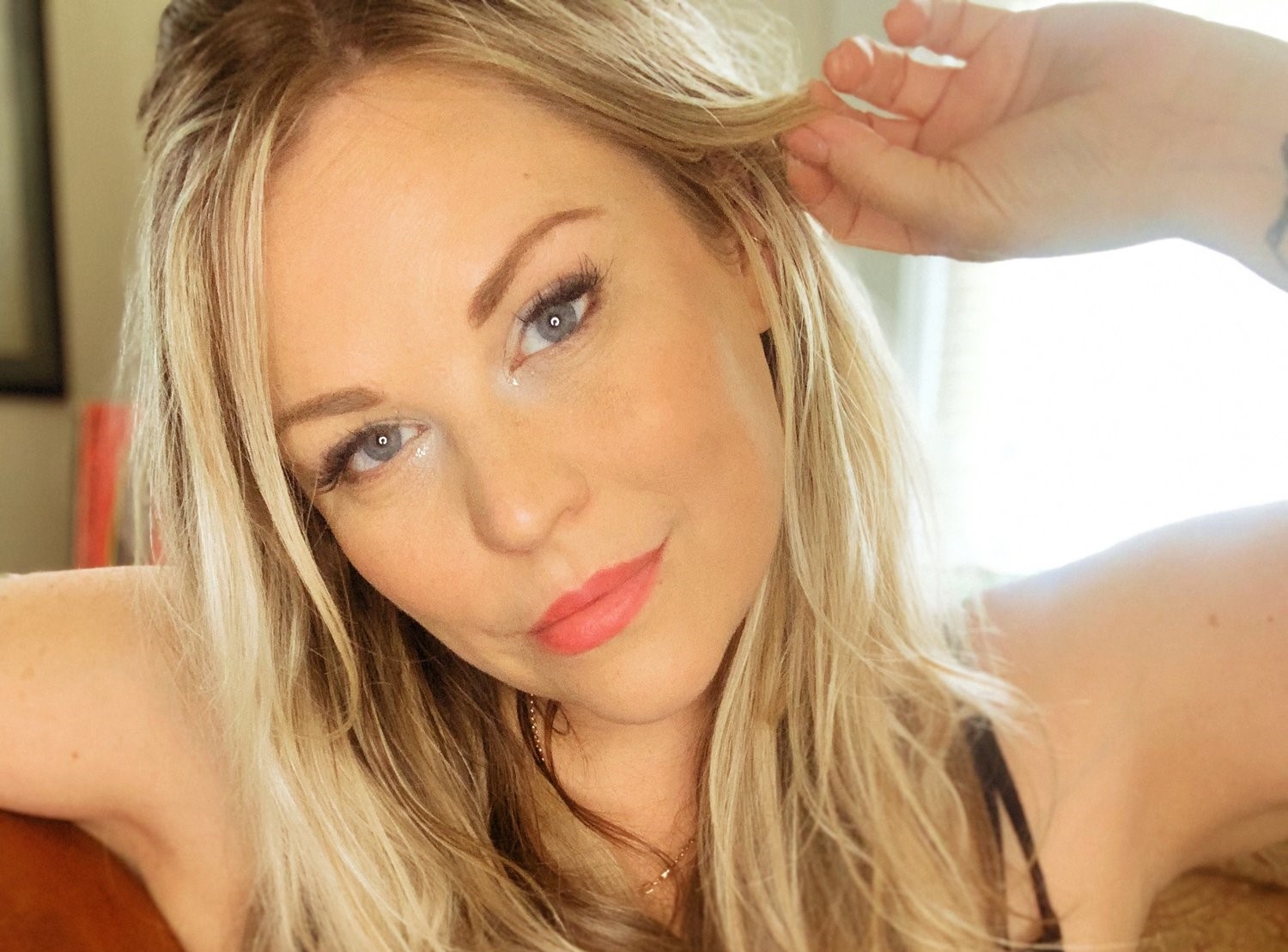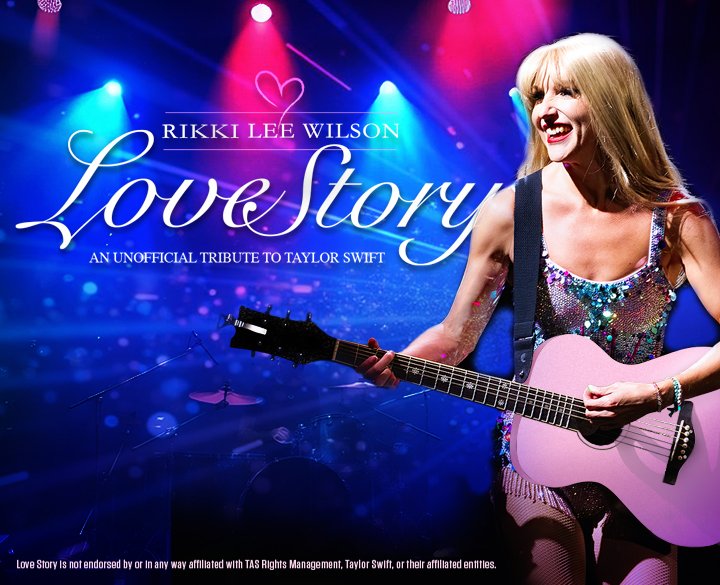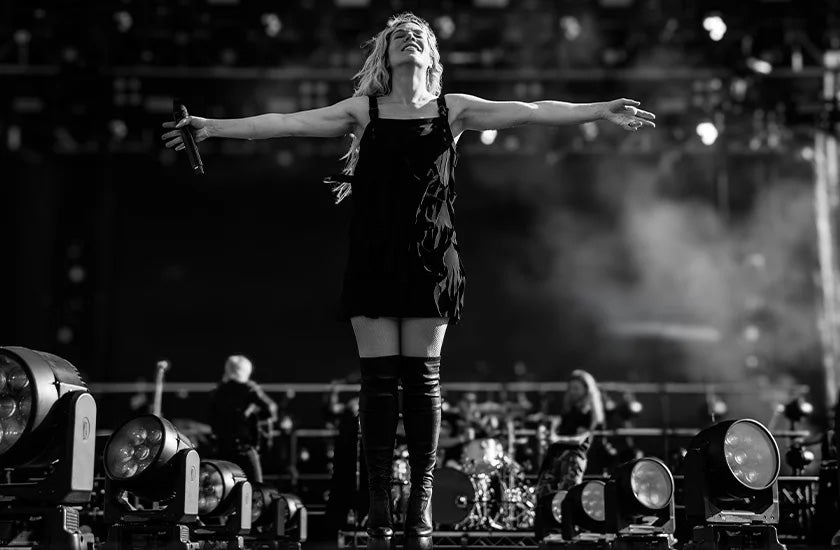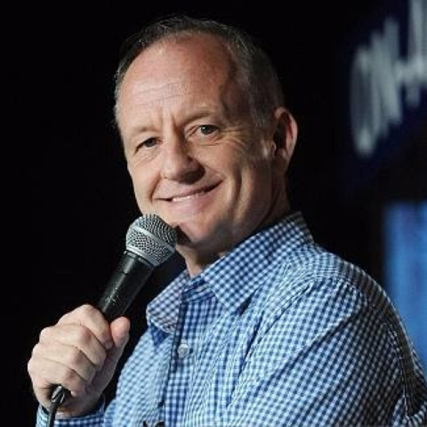That's it for this week! Please continue to support live and original music and until next week....ROCK ON!
This week's event listings
Al's Airport Inn636 Bear Tavern Road West Trenton
(609) 883-5252
Thurs. 5 p.m. Jessica DiDonato
Sat. (12 p.m.) Acoustic Brunch w/ Jerry Monk (5 p.m.) Bev & Dan Duo
Sun. (12:30 p.m.) Sunday Acoustic Brunch w/ Jessica DiDonato (7:30 p.m.) 6:30 p.m. Super Bowl Watch Party
Mon. 5 p.m. Bud Belviso
Tues. 7 p.m. Brian Elliot
Wed. 7 p.m. Mark Sacco
Ancient Order of Hibernians2419 Kuser Road Hamilton
Sun. 5 p.m. Super Bowl Party
Arts Council of Princeton 102 Witherspoon Street Princeton
(609) 924-8777
Fri. 5 p.m. Art of the Potter's Wheel
Sat. 3 p.m. Opening Reception "Where Color Meets Memory"
Artworks Trenton 19 Everett Alley Trenton
(609) 394-9436
Sat. 10 a.m. Valentine's Day Special Fluid Acrylics Workshop w/Adriana Groza. $225 (Includes canvas, paints, tools/supplies. gourmet refreshments)
Ashlynn Distillery32 West Bridge Street Morrisville, PA
Thurs. 5 p.m. Open Mic Night
Fri. 7 p.m. Singing Humans
Mon. 4 p.m. "Galentine's Day" feat. (6 p.m.) Ty Kingsley
Tues. 6 p.m. Be Your Own Bartender: "Valentine's Day" Mixology Class. $50
Wed. 8 p.m. Comedy Show Night. $15
Bailey's Bar & Grille6922 Bristol-Emilie Road Levittown, PA
(215) 946-7992
Fri. 9 p.m. Shot of Southern
Bill's Olde Tavern 2694 Nottingham Way Hamilton
(609) 586-0192
Mon. 7 p.m. Trivia
Tues. 8 p.m. / Wed. 8 p.m. Karaoke w/ Dave Curtis
Ages 21+
Blend Bar & Bistro 911 Highway 33 Hamilton
(609) 245-8887
Thurs. 5 p.m. "Hamilton Has Heart" Benefitting the RWJ Young Professionals Group. (Guest bartenders, appetizer buffet, drink specials, prizes)
Blue Bottle Cafe101 East Broad Street Hopewell
(609) 333-1710
Wed. 6 p.m. Brian Elliot
Bordentown CityFarnsworth Avenue Bordentown
Fri. 5:30 p.m. "Chocolate Walk" $8 (advance)
Boro Bean9 East Broad Street Hopewell
(609) 466-6681
Tues. 10 a.m. "Music For Lovers" Valentine's Day at The Boro Bean w/ John Abbott.
Bowman's Tavern 1600 River Road New Hope, PA
(215) 862-2972
Thurs. 6:30 p.m. Jonathan Daddis
Fri. (5:30 p.m.) Bennett Lee (8 p.m.) Bob Egan
Sat. 7 p.m. Jeffrey Fadden Trio
Sun. (12 p.m.) Larry Tamanini (6 p.m.) Lorenzo
Tues. 6 p.m. Valentine's Day w/ (TBA)
Wed. 6 p.m. Liz DuFour
Bristol Riverside Theater2501 Bath Road Bristol, PA
(215) 785-0100
Thurs. 8 p.m. "My Mother's Italian, My Father's Jewish, I'm In Therapy"
Fri. 8 p.m. "My Mother's Italian, My Father's Jewish, I'm In Therapy"
Sat. 2 p.m. / 8 p.m. "My Mother's Italian, My Father's Jewish, I'm In Therapy"
Sun. 2 p.m. Bristol Community Concert w/ Karen River Band
Broken Goblet Brewing2500 State Road Bensalem, PA
(267) 812-5653
Thurs. 8 p.m. Mike Estabrook
Fri. 8:30 p.m. Broad Street Appeal
Sat. 8:30 p.m. Eagles/Giants Bet Payoff w/ Bub and Jay
Sun. 11 a.m. Sunday Brunch
Wed. 7 p.m. Soulfly, Bodybox, Half Heard Voices, Hath. Ages 18+, Doors open at 7 p.m.
Bucks On Bridge 25 Bridge Street Lambertville
(609) 483-2615
Thurs. 5 p.m. Bill Ihling
Fri. 6:30 p.m. Poetry Night
Tues. 5 p.m. Chess Night
Bury The Hatchet Princeton2495 Brunswick Pike Lawrenceville
(609) 337-2557
Fri. 7 p.m. Glow Throw
Sun. 11 a.m. "Super Bowl Sunday"
Tues. 1 p.m. Axes & Os
Cadwalader Park299 Parkside Avenue Trenton
(408) 335-4400
Fri. 6 p.m. "Trenton Talks" Curators RoundTable w/ C.a. Shofed, Lank, Buck Malvo, Heather Palecek, Brass Rabbit, Habiyb Shu'aib. (Takes Place at Ellarslie Museum)
Sat. 4 p.m. "Trenton Talks" Curators RoundTable w/ C.a. Shofed, Lank, Buck Malvo, Heather Palecek, Brass Rabbit, Habiyb Shu'aib. (Takes Place at Ellarslie Museum)
Candlelight Lounge24 Passaic Street Trenton
(609) 695-9612
Thurs. 6 p.m. Thursday Night Blues Jam. $5
Sat. 3 p.m. Elijah Cole $20
Catch A Rising Star (Hyatt Regency Princeton)
102 Carnagie Center Princeton
(781) 568-1471
Fri. 8 p.m. Vince August, John Bramnick. Hosted by Steve Trevalise. $23.69, Doors open at 7:30 p.m.
Sat. 8 p.m. Bobby Collins Hosted by Michael Schwartz. Doors open at 7:30 p.m. (Takes place in the Jr. Ballroom)
Cazz's Sports Bar 'N' Grille1560 Haines Road Levittown, PA
(267) 580-5469
Fri. 9:30 p.m. Karaoke w/ Paul
Chickie's & Pete's 183 US Highway 130 North Bordentown
(609) 298-9182
Fi./Sat. 8 p.m. DJ Entertainment
City Streets 510 Highway 130 South East Windsor
(609) 426-9400
Sat. 9 p.m. Jim Delre Band
Club Atlantis 1858 Street Road Bensalem, PA
(215) 944-1777
Sat. 9 p.m. DJ Robbie Tronco
All Events Ages 21+ and Dress to Impress
Clubhouse at Mountain View (The Patio)
850 Bear Tavern Road Ewing
(609) 538-0808
Thurs. 7 p.m. Karaoke
Fri. 6:30 p.m. Ernie White
COARadio.com 125 South Main Street Hightstown
(609) 241-7103
Fri. 7 p.m. "Danny Coleman's Got The Blues"
Sat. 3 p.m. “Rock On Radio Indie Hour"
Sun. 7 p.m. "Rock On Radio" feat. The Break Plans and Asbury Park Vibe's Diane DiMemmo
Color Me Mine (Princeton Shopping Center)
301 Harrison Street Princeton
(609) 581-9500
Thurs. 6:30 p.m. "Mother Son Night of Fun" $15 (Covers Mother and son, additional son(s) $5 each. Registration required)
Fri.. 6:30 p.m. "Daddy Daughter Date Night" $15 (Covers Dad and daughter, additional daughter(s) $5 each. Registration required) / Family Canvas Painting Event "Gnomes" (Registration required)
Sun. 4 p.m. "GALentine's" Painting Event "Paint by Candlelight"
Cooper's Riverview 50 Riverview Plaza Trenton
(609) 393-7300
Thurs. 8 p.m. Club Night "Traffic Light Party" w/ DJ Paul Desisto. Ages 21+
Fri. (8 p.m.) High Energy 80s w/ "The Influence" (9 p.m.) DJ Jazzi. Ages 21+
Sat. 8 p.m. Se7en
Sun. 11 a.m. Jazz Brunch w/ Victor Tarassov
Tues. 5 p.m. Salsa Tuesdays w/ DJ Jay Serrano
Wed. (7 p.m.) Blues Jam (8 p.m.) Disco “Hustle” Night w/ "Guest" DJs. $5
Cream Ridge Winery 145 Route 539 Cream Ridge
(609) 259-9797
Fri. 6:30 p.m. "Design & Wine" Floral Arranging Hosted by The Prickly Pig. $50 (Includes one glass of wine, you keep the glass)
Sat. 12 p.m. Wine & Chocolate Day. $15 (Includes 10 tastes of wine, you keep the glass)
Crossing Vineyard and Winery 1853 Wrightstown Road Washington Crossing, PA
(215) 493-6500
Thurs. 7 p.m. Pairing Wine & Popcorn
Fri. 7:15 p.m. "Summer Wine and Music Series" feat. $15 (advance), Doors open at 5 p.m., Ages 21+
Sat. 2 p.m. Valentine's Weekend w/ Kim & Chuck Duo
Sun. 2 p.m. Valentine's Weekend w/ Joe Grillo
Cross Pollination Gallery2 North Union Street Lambertville
(609) 213-6734
Fri. 5 p.m. "Friday Happy Hour." (Talk art, wine and musicians who bring instruments)
Sat. 5 p.m. "Second Saturday" feat. SiriOm Singh and the Soul Warriors
Curran’s Irish Inn1909 Bristol Pike Bensalem, PA
(215) 245-1800
Thurs. 7 p.m. Music Bingo
Sat. 8 p.m. Mushed Up
Tues. 7:30 p.m. Quizzo
Dacey's Pub215 West Philadelphia Avenue Morrisville, PA
(215) 295-4838
Fri. 6:30 p.m. Acoustic Music Night
Wed. 8 p.m. Quizzo
Dadz Bar and Grill744 Main Street Lumberton
(609)267-4344
Thurs. 7 p.m. Open Mic w/ Jimmy Mannix
Tues. 7 p.m. Open Mic Hosted by Edgar Anderson
Dempster's Pub437 Pine Street Mount Holly
(609) 261-0500
Fri. 7 p.m. Rob McMahon
Sun. 1 p.m. Super Bowl Sunday Tailgate Party w/ Rough Cut
Eddington House Bensalem2813 Hulmeville Road, Bensalem, PA
(215) 639-1220
Fri. 8 p.m. Keep The Change
Sat. 8 p.m. Last Call
Sun. 3:30 p.m. Super Bowl Party
El Barrio Cantina & Tequila Bar1470 Buck Road Southampton, PA
(267) 685-0725
Fri. 8:30 p.m. Cara Cartney
Sat. 8:30 p.m. DB3
Flying Pig Tavern & Tap167 US-Route 130 North Bordentown
(609) 899-7447
Fri. 8 p.m. Mike Estabrook and the E-Miners
Sat. 8 p.m. El Ka Bong
Tues. 9 p.m. Karaoke
Wed. 8 p.m. Trivia
Founding Father's Sports Bar & Grill2900 Street Road Bensalem, PA
(215) 923-1100
Fri. 6 p.m. Bob Pantano Dance Party w/ DJ Joe Castro
Friendly's1031 Washington Boulevard Robbinsville
(609) 426-9203
Wed. 6 p.m. Open Mic Night Hosted by Kevin McGowan and/or Gino Formaroli (Sign-ups begin at 5:30 p.m.)
Gleason's Bar6700 Mill Creek Road Levittown, PA
(215) 943-4781
Thurs. 7 p.m. Music Bingo / “Ladies Night” Hosted by Best Choice Productions
Fri. (6 p.m.) "Happy Hour" (9 p.m.) Tailspin
Sat. 8 p.m. Leading Zero
Tues. 6:30 p.m. Trivia Night Hosted by Best Choice Productions
Hamilton Tap & Grill557 US Route 130 North Hamilton
(609) 905-0925
Thurs. 6:30 p.m. Music Bingo w/ DJ Nebbs
Sun. 4 p.m. Super Bowl Watch Party
Wed. 7 p.m. Trivia
Havana New Hope 105 S. Main Street New Hope, PA.
(215) 862-9897
Thurs. 7 p.m. Funk & Blues Jam Hosted by The Slidewinder Blues Band
Fri. ( 8 p.m.) Rolling Stones Tribute w/ "Well Alright" (11 p.m.) DJ Dance Party
Sat. (8:30 p.m.) Bigg Romeo (11:59 p.m.) 9:30 p.m. DJ Dance Party
Sun. 12 p.m. ALL Day Super Bowl Party
Mon. 9 p.m. Karaoke w/ Dwayne
Tues. 7 p.m. Jillian Ashcroft Jazz Quartet
Wed. 7 p.m. Jumper Duo
Hopewell United Methodist Church20 Blackwell Avenue Hopewell
(609) 466-0471
Fri. 6:30 p.m. Open Mic Night
Sat. 6 p.m. Hopewell Hayride (Old Time Country & Bluegrass) feat. Al Kessel & Never Too Late Band, Magnolia Street String Band, Ann Brown, Bob Belloff, Chis Turner. $15 (Suggested donation adults includes food)
Hopewell Valley Vineyards 46 Yard Avenue Pennington
(609) 737-4465
Fri. 4 p.m. "Music & Merlot" feat. (5 p.m.) Christine Havrilla
Sat. (1 p.m.) (5 p.m.) "Music & Merlot" feat. Modern Rewind
Sun. (11 a.m.) Vanlentine's Day Brunch. $39.95 (1:30 p.m.) "Jazzy Sundays" feat. Mark Feingold
Hurricane Jacks Bar and Grill 7759 New Falls Road Levittown, PA
(267) 914-4517
Thurs. 7:30 p.m. Music Bingo w/ DJ John W.
Fri. (6 p.m.) Happy Hour w/ Johnny Betz (9 p.m.) Jed's Gold
Sat. 8:30 p.m. Karaoke w/ Paula & Sam
Mon. 7 p.m. Motown Mondays w/ rotating DJs BeeNice, Rawskillz, JusGroove
Tues. 8 p.m. Acoustic Tuesday w/ Harley Minton
Wed. 7 p.m. Open Mic w/ Laura Fiocco
Il Portico Restorante Italiano273 West Route 130 South Burlington
(609) 239-1000
Thurs. 7 p.m. Jazz Night
Fri. / Sat. 7 p.m. Live Music w/ Tony O
Irish Rover Station House1033 South Bellevue Avenue Langhorne, PA
(215) 970-5412
Sat. 8 p.m. Aaron Quarterman
Sun. 6 p.m. Super Bowl Watch Party
Wed. 7 p.m. Quizzo Night
Iron Plow Vineyards 26750 Mount Pleasant Road Columbus
(732) 306-9111
Fri. 6:30 p.m. Justin Love
Sat. 2 p.m. Bob & Dave
Sun. 2 p.m. Bob O
Iron Plow Vineyards Tasting Room61 High Street Mt. Holly
(732) 306-9111
Sat. 6:30 p.m. Wounded Souls & Trinity Poetry
John & Peter's 96 S. Main Street New Hope, Pa
(215) 862-5981
Fri. 9 p.m. "Hunker In The Bunker" feat. Bill Hangley, Bill & Fred's Excellent Adventure, The 9-9ers feat. Graham Ford.
Sat. (3 p.m.) D Town Outliers (8 p.m.) The Cryptkeeper Five, Alright Junior, The Waywoods
Mon. 9 p.m. Open Mic w/ Mike Dialto (Sign-ups start at 8 p.m.)
Tues. 9 p.m. T-Bird & Rico's Love Lounge
Wed. 9 p.m. The Invitational
All shows 21+
Killarney's Publick House 1644 Whitehorse-Mercerville Road Hamilton
(609) 586-1166
Thurs. (5:30 p.m.) Mark Sacco (9 p.m.) The Benjamins
Fri. 9 p.m. Big Hix Trio
Sat. 10 p.m. Stupid Cupid Dance Party w/ DJ
Sun. (10 a.m.) "Sunday Funday" Brunch (6:30 p.m.) Super Bowl Watch Party
Mon. 5:30 p.m. Fundraiser for Artie. $65
Tues. 5:30 p.m. Valentine's Day feat. menu/drink specials and music by Wayne Billotti
Wed. 6 p.m. "Ladies Night"
Lakeside Cafe and Liquors129 Route 31 North Pennington
(609) 621-9998
Sat. 1 p.m. Trivia
Laurita Winery 85 Archertown Road New Egypt
(609) 752-0200
Thurs. 6 p.m. Wine & Bundt Cakes. $35 (Includes 4 glasses of wine and 4 Bundt cakes. SOLD OUT check for availability)
Fri. 7 p.m. "Valentine's Weekend Dinner. $60/$85 (Includes 4 course dinner)
Sat. 12 p.m. "Wine & Chocolate Weekend" feat. (1 p.m.) Carmen Marranco & Jim Matlack (7 p.m.) "Valentine's Weekend Dinner. $60/$85 (Includes 4 course dinner. SOLD OUT check for availability)
Sun. 12 p.m. "Wine & Chocolate Weekend" feat. (1 p.m.) The Bergers
Magikava87a South Main Street New Hope, PA
(215) 862-2739
Wed. 6:30 p.m. Open Mic Night
Marie's Kozy Korner111 Trenton Road Fairless Hills, PA
(215) 943-3131
Sun. 6:30 p.m. Super Bowl Watch Party
MarketFair 3535 U.S Highway 1 Princeton (Center Courtyard)
(609) 452-7777
Fri. 5:30 p.m. "Galentine's Night Out" $35 (Includes charcuterie workshop, mocktails, desserts, gift bags)
Sat. 1 p.m. Celebrate Lunar New Year
McStews Irish Sports Pub 5316 New Falls Road Levittown, PA
(215) 949-9570
Thurs. 7:30 p.m. Music Bingo
Sun. 5:30 p.m. Super Bowl Watch Party
Tues. 7:30 p.m. Trivia Night
Millhill Basement 300 S. Broad Street Trenton
(609) 989-1600
Sun. 5 p.m. Superbowl Party (FREE / Donations accepted benefitting T.A.S.K)
Mill Hill Playhouse (Passage Theater)
205 East Front Street Trenton
(609) 392-0766
Sat. 11 a.m. "Engaging The Pittsburgh Cycle: The Work of August Wilson" Workshop. $20
More Than Q13 Klines Court Lambertville
(609) 773-0072
Sat. 1 p.m. Jet Weston & His Atomic Ranch Hands
Music Mountain Theater1483 Route 179 Lambertville
(609)397-3337
Fri. 8 p.m. "The Secret Garden"
Sat. 3 p.m./ 8 p.m. "The Secret Garden"
Sun. 3 p.m. "The Secret Garden"
Naked Brewing Company212 Mill Street Bristol, PA
(267) 544-7129
Thurs.6:30 p.m. Dana Collins Project
Fri. 7 p.m. Faraway Guys
Sun. 11 a.m. Weekend Brunch
Tues. 7 p.m. Trivia
Neshaminy Creek Brewing Company909 Ray Avenue Croydon, PA
(215) 458-7081
Thurs. 7 p.m. Video Game Night
Fri. 7 p.m. FREE Movie Night feat. "My Bloody Valentine"
Sun. 5:30 p.m. "Birds N Brews" Big Game Watch Party
Tues. 4 p.m. Valentine's Day at Neshaminy Creek
Wed. 7 p.m. "Dungeons & Drafts"
New Egypt Flea Market Village933 Monmouth County Road Cream Ridge
(609) 758-2082
Sun. 3 p.m. Blooms and Sweets for Mommy & Me
New Hope Winery / Tavern6123 Lower York Road New Hope, PA
(215) 794-2331
Sat. (5 p.m.) Snapdragons (8 p.m.) Mary Fahl
Sun. 1 p.m. Sunday Jazz
Tues. 8 p.m. Griffin House
Newtown Athletic Club120 Pheasant Run Newtown, PA
(215) 968-0600
Sat. 11:30 a.m. Open House & Family Fun Day
Newtown Brewing Company103 Penns Trail Newtown, PA
(215) 944-8609
Thurs. 7:30 p.m. "Useless Knowledge" Trivia
Fri. 6 p.m. Aaron Quarterman
Sat. 6 p.m. Mike Gruve
Nick's Roast Beef4501 Woodhaven Road West Philadelphia, PA
(215) 637-5151
Thurs. 7 p.m. Trivia
Fri. 9 p.m. LeCompt
Sat. 9 p.m. WURL
Sun. 6:30 p.m. Super Bowl Party
Wed. 7 p.m. Karaoke
Nottingham Tavern 9 Mercer Street Hamilton Square
(609) 587-6623
Thurs. 9:30 pm.Karaoke w/ Super Dave Curtis.
Fri. 9:30 p.m. Midnight Sun
Sat. 9:30 p.m. Black Brant
Ages 21+
Odd Logic Brewing Co. 500 Bristol Pike, Bristol, PA
Thurs. 6 p.m. Trivia
O'Fowley's Tavern & Grill 200 State Road Croydon, PA
(215) 785-6998
Mon. 7 p.m. Music Bingo Hosted by Best Choice Productions w/ DJ John S
Tues. 7 p.m. Quizzo
Old Hights Brewing123 West Ward Street Hightstown
(609) 469-5976
Fri. 6 p.m. Mike Montrey Band Duo
Sat. 8 a.m. Saturday Morning Runs
Wed. 6:30 p.m. Trivia
Old Town Pub 135 Farnsworth Avenue Bordentown
(609) 291-9232
Thurs. 7 p.m. Quizzoholics Trivia
Fri. 9 p.m. Monk & Monk
Sat. 9 p.m. Radio Fiction
Tues. 6 p.m. Farns & Rail Valentine's day
Wed. 7 p.m. Rotary Mix & Mingle
Palmer Square40 Nassau Street Princeton
Thurs. 4 p.m. "Skating On The Square" $10/$12 (Includes skate rental)
Fri. 4 p.m. "Skating On The Square" $10/$12 (Includes skate rental)
Sat. 12 p.m. / 4 p.m. "Skating On the Square" $10/$12 (Includes skate rental)
Sun. (11 a.m.) DIY Pop-Up Project: Embroidered Hearts. (12 p.m. / 4 p.m.) "Skating On the Square" $10/$12 (Includes skate rental)
Patriots Crossing 1339 River Road Titusville
(609) 737-2780
Thurs. 8 p.m. Ladies Night
Wed. 7 p.m. "Quizzo"
Pete's Steak House 523 Whitehorse Avenue Hamilton
(609) 585-8008
Fri. 9 p.m. Unleashed
Princeton Country Club 1-Wheeler Way West Windsor
(609) 452-9382
Thurs. 6 p.m. Karaoke Night w/ Live DJ
Fri. 6 p.m. Happy Hour w/ Live DJ
Sun. 11 a.m. Jazz Brunch
Princeton Makes 301 North Harrison Street Princeton
Sun. 4 p.m. Second Sunday Poetry
Princeton Public Library (Hinds Plaza)65 Witherspoon Street Princeton
(609) 924-9529
Thurs. 7 p.m. "The Sky is for Everyone" Women Astronomers in Their Own Words" w/ Jill Napp, Neta Bahcall Liz Fuller-Wright.
Princeton Unitarian Church (Channing Hall)
50 Cherry Hill Road Princeton
Sun. 4 p.m. PSMA "Beethoven"
Princeton University (Richardson Auditorium)
Nassau Street Princeton
Thurs. (12:30 p.m.) Thomas Sheehan Organ Concert & Radio Broadcast. (Takes place at University Chapel) (7:30 p.m.) "Breath by Breath" feat. Fred Hersch.
Fri. 7:30 p.m. Borealis Wind Quintet (Takes place at University Chapel)
Sun. 2 p.m. "The Artist Within" w/ Eastern Wind Symphony. $30
Puss N Boots Tavern942 Tenton Road Fairless Hills, PA
(215) 295-8236
Fri. 8 p.m. Karaoke
Sat. 7 p.m. "Oldies Night" w/ DJ Jimmy Mac
Tues. 7 p.m. Trivia
Recklesstown Farm Distillery2800 Route 206 North Columbus
(609) 784-8046
Sat. 12 p.m. / 7 p.m. Cookie Decorating Class
Sun. 12 p.m. Valentine's Day Pop-Up w/ "House of Cupcakes"
Revere Restaurant802 River Road Ewing
(609) 882-6365
Sat. 6 p.m. DC Duo
River House at Odette’s274 South Rive Road New Hope, PA
(215) 682-2022
Thurs. (7 p.m.) Gina Corso (9 p.m.) Cara Cartney
Fri. (7 p.m.) Carol Lynn Duo (9 p.m.) CJ Steinway
Sat. (11:30 a.m.) Brunch w/ Alex Otey (7 p.m.) Bob Egan (9 p.m.) Greg McGarvey
Sun. (11:30 a.m.) Brunch w/ Neil Podgurski Duo (7 p.m.) Michael Andrew
Rose Bank Winery 258 Durham Road Newtown, PA
(215) 860-5899
Sat. 1 p.m. "Tastings & Tunes in the Buckman Barn" feat. Cara Cartney
Rossi's Bar & Grill 2110 Whitehorse-Mercerville Road Hamilton
(609) 890-2004
Thurs. 5:30 p.m. Ernie White
Salon 33794 Alexander Road Princeton
Fri. 7 p.m. Christine Petrini w/ V diMura
Sat. 7 p.m. Caleb Eckstein's SWINGTET
Sun. 7 p.m. "La flute francaise" feat. Veronica Mascaro & Kristin Ditlow
Sandy's Beef & Ale2028 E. Old Lincoln Highway Langhorne, PA
(2670 852-2333
Thurs. 8 p.m. Quizzo
Mon. 7 p.m. Music Bingo
Second Sin Brewing Company1500 Grundy Lane Bristol, PA
(267) 812-5251
Thurs. 7 p.m. Trivia
Shady Brook Farm931 Stony Hill Road Yardley, PA
(215) 968-1670
Thurs. 7 p.m. Trivia
Fri. 6:30 p.m. Winter UnWINEd Concert feat. The Naturals
Sat. 6:30 p.m. Winter UnWINEd Concert feat. Joe & Krista
Slim's Irish Pub2195 Galloway Road Bensalem, PA
(267) 332-0047
Sat. 9 p.m. Fat Mezz
Mon. 6 p.m. Open Mic Night Hosted by Cecil
Wed. 6 p.m. Karaoke Contest
Small World Coffee 14 Witherspoon Street Princeton
(609) 924-4377 x2
Sat. 6 p.m. Tom Tallitsch
Sparky's World-Famous Beer Garden4333 New Falls Road Levittown, PA
(215) 943-2321
Thurs. 9 p.m. Karaoke w/ DJ Dana
Sat. 9 p.m. Shameless
Sun. 9 p.m. Open Mic Hosted by Cara Cartney
Mon. 9 p.m. Game Night Hosted by Kid Dalton
Tues. 7 p.m. Johnny Betz
Wed. 8 p.m. Casey & Mike
Spellbound Brewing10 Lippincott Lane #12 Mt. Holly
(609) 832-0077
Fri. 7:30 p.m. Ride or Die: "Galentines & Bromances" (FREE w/ $15 "Suggested" donation)
Steam Pub606 2nd Street Pike Southampton, PA
(215) 942-6468
Fri. 10 p.m. DJ Finnesse
Sat. 10:30 p.m. EarCandy
1675 Spirits2685 Bristol Pike Bensalem, PA
(215) 645-1445
Fri. 6 p.m. Johnny Never and John Colgan-Davis
Tara's Tavern1 Cookstown-New Egypt Road, Wrightstown
(609) 286-2300
Fri. 8:30 p.m. Karaoke w/ Big Daddy G
Sat. 8:30 p.m. Jay Oliver Acoustic
Tavern On The Lake 101 Main Street Hightstown
(609) 426-9345
Sun. 6 p.m. Super Bowl Party
Tues. 6 p.m. Trivia
Wed. 7 p.m. Karaoke
TCNJ College of New Jersey2000 Pennington Road Ewing
(609) 771-2467
Sat. 8:30 a.m. TCNJ Brass Summit 2023
Temperance House 5 South State Street Newtown, PA
(215) 944-8050
Sat. 7 p.m. The Triplets
Mon. 7 p.m. Trivia w/ Righteous Jolly
Tues. 7 p.m. Beginner Line Dance Lessons w/ Jeremy Line Dance. $40/4 Weeks
Wed. 7 p.m. Open Mic Night w/ Cara Cartney
Terhune Orchards 330 Cold Soil Road Princeton
(609) 924-2310
Sat. 1 p.m. "Weekend Music Series" feat. "Wine & Chocolate Weekend" feat. Brian Bornick
Sun. 1 p.m. "Weekend Music Series" feat. "Wine & Chocolate Weekend" feat. Michael Montemurro
TGI Fridays3535 U.S. Route 1 North #275 Princeton
(609) 520-0378
Fri. 6 p.m. Mike Rocket
Sun. 1 p.m. Lisa Bouchelle
The Birdhouse Center For The Arts7 North Main Street Lambertville
(215) 681-4660
Fri. 8 p.m. Corner House
Sat. 8 p.m. 9th Annual Love Birds Concert feat. Bronwyn Bird & Justin Nawn, The Manchesters, Kelly Bolding & Shaun Ellis, John & Laua Lee & Clover Beacher, Joy & Ben Cole, Daniella Fischetti & Tim Ryan, Debra Jean, Sarah Dodge & Pablo Londono, Lisa & Justin Pope, Alyssah Zeehjack, Lauren & Michael Bird, Meg Lomax & Jim. $10
Tues. 7:30 p.m. NJNO the "not just nyckelharpa orchestra" Community Orchestra
The Buck Hotel1200 Buck Road Feasterville, PA
(215) 396-2002
Thurs. 7 p.m. Kirko
Fri. (6:30 p.m.) A Valentine's Sinatra Show Dinner & Dance. $68 (Includes buffet, cash bar) (7 p.m.) Love Junk
Sat. (11 a.m.) Brunch (8 p.m.) Murder Mystery Dinner. $68 (Includes buffet, cash bar) (9 p.m.) The Nerds
Sun. (11 a.m.) Brunch (6 p.m.) Super Bowl Party
Tues. 7 p.m. Danny Lynch Duo
The Cool Cricket 216 Burlington Street Fieldsboro
(609) 291-9110
Fri. 9 p.m. Karaoke w/ Dave Curtis
Sat. 9 p.m. Asylum Choir
The Cure Insurance Center 81 Hamilton Ave. Trenton
(609) 656-3200
Fri. 7:30 p.m. Hot Wheels Monster Trucks Live!
The Dubliner34 North Main Street New Hope, PA
(215) 693-1816
Fri. 7 p.m. Na Bodach
Sat. 7 p.m. JB Rocks
Sun. 3 p.m. "Traditional Irish Session"
The Five Four Bar & Grill8919 New Falls Road Levittown, PA
(215) 547-5525
Thurs. 8 p.m. Karaoke w/ Paula and Sam
Fri. 9 p.m. Buzzer Band
Sat. 9 p.m. Big Game "Super Tailgate Party" w/ Jukebox Graveyard
Tues. 7:30 p.m. Music Bingo w/ Jonathan Appel
Wed. 7 p.m. Open Mic Hosted by Chris Benedetti
The Independent Order of Odd Fellows112 Fourth Avenue Roebling
Sat. 7 p.m. Country Line Dancing. $10, doors open at 6:30 p.m.
The Ivy Inn 248 Nassau Street Princeton
(609) 921-8555
Fri. 9:30 p.m. DJ Fatha Ramzee
Sat. 9:30 p.m. DJ Slick
Tues. 8 p.m. Quizzo w/ Bob E Luv
Wed. 10 p.m. Total Request w/ DJ Rockin' Ron
The Morrisville Tavern376 West Trenton Avenue Morrisville, PA
(215) 295-5310
Thurs. 7 p.m. Trivia Night
Fri. 8 p.m. The Bambu Weasels
Tues. 7 p.m. Music Bingo
Wed. 7 p.m. Trivia Night
The Newtown Theatre120 North State Street Newtown, PA
(215) 968-3859
Sat. 8 p.m. A Soul Shakedown Party feat. "Crucial" Doors open at 7 p.m.
The Roost 181 Rte. 539 Cream Ridge
(609) 208-0050
Thurs. 6:30 p.m. DC Duo
Fri. 8 p.m. Diablo Sandwich Band
Sat. 8 p.m. Underwater Airlines
Wed. 6 p.m. Joe Vadala
The Sycamore Grill 255 North Sycamore Street Newtown, PA
(215) 908-6326
Fri. 8 p.m. Plush Duo
Sat. 8 p.m. Brian Elliot Duo
The Tavern at Penns Park2295 Second Street Pike Newtown, PA
(267) 491-5658
Fri. 8 p.m. Tuesday Night Special
The Union Firehouse18 Washington Street Mount Holly
(609) 288-6491
Fri. 8 p.m. Punk Rock Tribute Night w/ Wasted Potential (Misfits, Danzig, Dead Boys), Nimrod (Green Day), Rude Boy (The Clash) Doors open at 7 p.m.
Sat. 8 p.m. Steal Your Face. Doors open at 7 p.m.
Sun. 1 p.m. Michael Warren CD Release Party
The Union House19 East Union Street Burlington
(609) 531-6077
Sat. 8 p.m. Dave Cudrak
Third State Brewing 352 High Street Burlington
(609) 387-1620
Sun. 1 p.m. Super Bowl Party
Tir Na Nog 1324 Hamilton Avenue Trenton
(609) 392-2554
Sun. 3 p.m. "Irish Sessions"
All Shows 21+
Trenton Social 449 South Broad Street Trenton
(609) 989-7777
Thurs. 5 p.m. "Happy Hour Throwback Thursday"
Fri. 6 p.m. "Out of the Blue" feat. works by Alia Bensliman, Amanda Chesney, Heather Palecek
Sat. 9 p.m. Live Music (TBA)
Mon. 6 p.m. "Monday Night Karaoke" Hosted by Sweets
Tues. 8 p.m. Open Mic Night w/ Tobias & Lea (Sign-ups at 7:30 p.m.)
Under The Moon23 North Union Street Lambertville
(609) 397-1710
Tues. Valentine's Day Prix Fixe Menu. $80
Vault Brewing Company10 South Main Street Yardley, PA
(267) 573-4291
Fri. 7 p.m. Wendy Simon Duo
Sat. 7 p.m. Carol Hamersma Trio
Wildflowers Inn 2572 Pennington Road Pennington
(609) 773-2392
Thurs. 6 p.m. Rob Silvers
Witherspoon Grill57 Witherspoon Street Princeton
(609) 924-6011
Tues. 6:30 p.m. Keith Franklin Jazz
Working Dog Winery 610 Windsor Perrineville Road Hightstown
(609) 371-6000
Sat. 1 p.m. "Wine & Chocolate Trail Weekend" feat. Jersey Sure Cats. $5
Sun. 1 p.m. "Wine & Chocolate Trail Weekend" feat. The Williamsboy. $5
WWFM 89.1 FM HD2 RadioMCCC Old Trenton Road West Windsor
Jazzon2.org
Mon. 7 p.m. "Danny Coleman's Got The Blues"
Danny Coleman is a veteran musician and writer from central New Jersey. He hosts a weekly radio program entitled 'Rock On Radio' airing Sunday evenings at 7:00pm EST on ThePenguinRocks.com where he features indie/original bands and solo artists.
FEATURED EVENTS
To narrow results by date range, categories,
or region of New Jersey
click here for our advanced search.
To narrow results by date range, categories,
or region of New Jersey
click here for our advanced search.
EVENT PREVIEWS
The Folk Project presents Stephen Kellogg's Old Friends Tour featuring the Kellogg Sisters on Friday
December 26, 2025
The 80's New Wave tour Totally Tubular Festival comes to Ocean Casino Resort
December 27, 2025
Lizzie Rose Music Room presents the Kelli Baker Band on Saturday
December 27, 2025
State Theatre New Jersey presents Salute to Vienna New Year's Concert
December 31, 2025
Start the New Year with Rikki Lee Wilson's Taylor Swift Tribute at The Broadway Theatre of Pitman
January 2-4, 2026
Saxophonist/Educator Julius Tolentino to perform with Former Students at January Jersey Jazz LIVE!
January 4, 2026
bergenPAC presents The Band Perry on January 11th
January 11, 2026
The Newton Theatre presents Queensrÿche
January 15, 2026
Roomful of Blues to Celebrate New Record at Lizzie Rose Music Room
January 18, 2026
Catch a Rising Star Comedy Club presents Buddy Fitzpatrick
December 26-27, 2025








